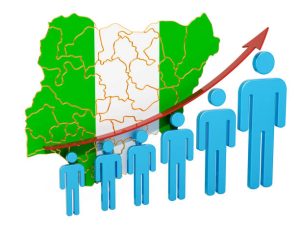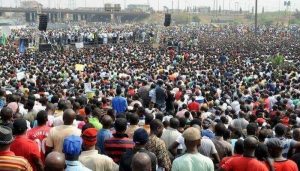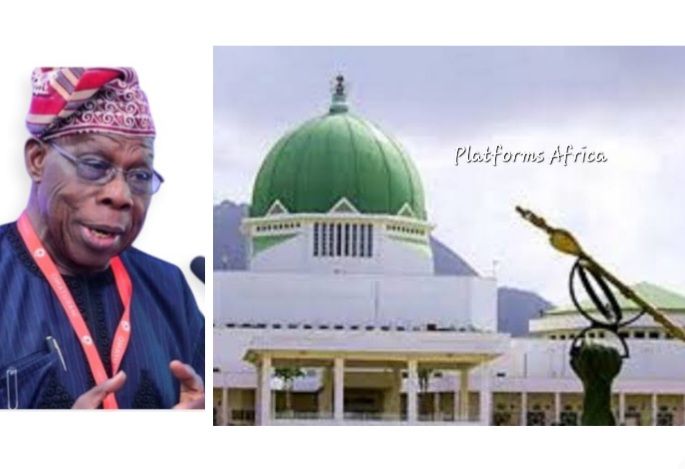The mass media function as the record keeping of a society, documenting its history for generations to come. Researchers have argued that African musicians are journalists and their creative works are enough as media content. Having reflected on the extent of the influence of their works, I have come to the conclusion that musicians also perform all the media functions highlighted by Harold Lasswell and Charles Wright – Surveillance, Correlation, Cultural Transmission, and Entertainment, not leaving out the Social Responsibility function of the media.
This reality comes to bear as I reflected on the contributions of musicians to the socialisation process when I was recently taking my students on “theories of mass communication”. To justify this assertion, I referred to one of the songs of a Nigerian musician, late Ayinla Omowura, on the national census exercise and how it served the dual functions of correlation and entertainment of the media. I also noted how his songs documented the historical events such as the census exercise in Nigeria which resonated with the literate and illiterate, the poor and rich, leaders and the led, children and adults, and all classes of people in the society. Kollington Ayinla is also one of the Nigerian musicians who dominated the Fuji music scene from its inception in the 1970s through the 1990s, by which time it had grown to become one of the most popular dance genres in Nigeria.

I later decided to check the archives to get the actual lyrics of Kollington Ayinla’s song on the national census as I remembered with nostalgia how the song dominated the airwaves in my community when the album was released. In the course of my search, I stumbled on the music of late Ayinla Omowura rendered 50 years ago on the 1973 census. It was then that I remembered that my guardian, Mr. Bashir AbdulAzeez Fabunmi used to play this song on his old record player – vinyl (popularly called slate) in the ’80s.

Nigeria’s census body, the National Population Commission (NPC) recently announced that it will conduct the 2023 Population and Housing Census between 29th March and 2nd of April, 2023. Ahead of the exercise, the Commission embarked on advocacy, enlightenment, publicity and meetings with stakeholders to get their buy-in to facilitate full participation.
To what extent are residents of Nigeria convinced to be part of this exercise? Do they actually know the benefits and usefulness inherent in active participation in this census exercise? Do Nigerians have full information on the proposed census? How could the government tackle conspiracy theories and false information associated with the 2023 census exercise?

In the communication parlance, we refer to the approach needed to be adopted in this circumstance as “Communication for Development”. Therefore, experts in this field will expect NPC to adopt different communication strategies. I must commend the NPC team led by its Chairman, Hon. Nasir Isa Kwarra, for its efforts so far in ensuring that all stakeholders are adequately informed of the exercise. But they need to look beyond the present approaches in order to tackle the challenges as highlighted in the above questions.They should also avoid the crises that greeted previous census exercises, especially that of 1962/63 which degenerated into a serious crisis that created deep tension in Nigeria. The imbroglio resulted into a big political problem for the Balewa government which had to cancel the year’s census exercise and ordered a recount. So much lesson must be learnt from this scenario.
One approach that should be adopted by NPC to address these challenges is the adoption of music which has the magical aura and power of uniting Nigerians. Entertainment plays a big role in terms of influence on all social strata of Nigerian society. Music is now a big business, a veritable mobilisation tool, propaganda instrument and attitudinal and behavioural change communication strategy needed at this time.
Play theory is one of the mass communication theories I exposed my students to, in the course of my lecture. The basic assumption of the theory is that the audience uses the media more for fun than work. While discussing the “uses and gratification theory”, the students accept the hypothesis that they use the media (radio, television, computer, smartphone etc.) more for entertainment to gratify their needs than rigorous work and academic activities. This experiment, therefore, should serve as motivation for the NPC to consider the use of entertainment such as music to provide adequate information in the 2023 census, mobilise stakeholders, combat disinformation and conspiracy theories, and be a catalyst for attitudinal and behavioural change.
For this reason, I will analyse the songs of the two Ayinlas (Omuwura and Kollington) in order to explore the golden lessons the NPC and other stakeholders could derive from approaches adopted in previous censuses in Nigeria and as documented by these musicians.
Why Nigerians must participate in Census – Ayinla Omowura
In an article titled: “The Framing of Political Messages in Ayinla Omowura’s Song-Texts”, Olayinka Egbokhare and Israel Ayinla Fadipe (2016) x-ray Ayinla’s song as a “roadmap to nation building” as it relates to the national census conducted about 50 years ago:
Leader: Anfani senso yiga o the benefits of census are many Fun eniti o ye for those who don’t know Sun mo mi ni bi let them move closer to me
Leader: November 25, 1973 November, 25 1973 Chorus: Lojo Sunday, mofojuri On Sunday, I was an eyewitness Emi ri soja kan pelu sisi kan I saw a soldier and a lady Won na won fe kawa nile wa they said they wanted to count us at home Mo try moyege I tried and excelled Mo ri pe won ka gbogbo le yika I ensured they counted all and sundry
Ko s’eniti o ka there was no one that wasn’t counted La se mura the reason we strived Kan fi ka wa nilet’oko to be counted round E je kirorun be to walowo please, let its benefits reach us
Ayinla Omowura was a Nigerian Apala musician described as social commentator, critic and moral instructor. “He often served as a mouthpiece for passing on government policies to the masses and was also a messenger of the masses back to the government”.
In less than four minutes, Ayinla Omowura in his song waxed about 50 years, emphasised the importance of Census to convince Nigerians why they should participate in the exercise. Rather than directly asking the people of Abeokuta, the Ogun State capital – and by extension Nigerians – to participate in the 1973 census, Ayinla highlighted basic social amenities and infrastructure needed in the capital city. These include: location of a University in Abeokuta, increase in maternity centres, improved portable water, and stable electricity supply. Ayinla, thereafter, established how the census exercise will aid national planning, allocation of resources, infrastructural and national development. He earlier endorsed the exercise noting that he did all within his capacity to ensure that members of his household were enumerated. What a wonderful “advertisement appeal”! NPC should further secure this type of endorsement in the 2023 Population and Housing Census.
This Ayinla Omuwura song also documented the approaches adopted by the then Ibrahim Bambangida military regime to encourage full participation in the census exercise. These include one week public holiday to all students, early closure of work by civil servants, and additional three days public holiday in order to enumerate all residents in Nigeria during the census period. Those who did not have their fingers inked were prevented from traveling during the period of the census. Ayinla also noted the extent of acceptance of the exercise and approaches adopted to prevent double or multiple counting of people. He reported that the rate of acceptance was so high that some Nigerians appealed to census functionaries to count the unborn babies, adding that, though, he did not support this social malpractice.
He commended the government for conducting the census, and Nigerians for their active participation. Ayinla did not only call on the government to ensure that it used the census figure to bring the necessary reform and good governance to the country. He also noted that the census figures indicated that the female population was more than that of male, advocating that wives should always respect and take care of their husbands to prevent marital-related crises.
In the first verse or stanza of his song, he declared that he wanted to state the importance of census just as he had explained the issue surrounding the Nigerian currency – the Naira. By coincidence, 50 years later, the issues of the 2023 census and redesign of the Naira are presently the subject of discussion in Nigeria. Can we say that history is repeating itself? This justifies that, just like journalists, musicians document historic events and some refer to them as prophets.
How Ayinla Kollington campaigned for citizens’ active participation in national census
In 1991, ‘General’ Kollington Ayinla in his “Ijo Yoyo” album, used part of the album to campaign for citizens’ active participation in the national census in Nigeria. In less than two minutes, Kolington developed a rhythm that emphasised the importance of census to national planning and development:
Mo ri bobo kan, senso! (I saw a young man. chorus: census). Ni se lo n pe mi, senso! (He called upon me. chorus: census) Mo ni kilo tije?, censo! (I asked why is he calling me? chorus: census). Olohun fe kami, senso! (He said he wanted to count me chorus: census). Boda ewa kawa, senso! (Young man, please count us, chorus: census). Ewa kawa, senso! (Please come and count us, chorus: census). Boda eti kawa aa, senso! (Young man, you have not counted us, chorus: census). Jeki won ka e tako tabo ooo, je ki won ka e tako tabo! (Let’s cooperate with them to count both male and female)……
Kollington further gave rationale for his advocacy for participation in the census. He explained that the census will provide an avenue for the government to provide for basic amenities and respond to the demands of citizens for good governance. He also enlightened members of the public to report to the authorities if they are not counted.
Music as social mobilisation tool for 2023 census
It has been established that Ayinla Omowura and Kollington Ayinla used their songs to document experiences in the previous national census in Nigeria. They used their music to moblise the citizens to have a positive mindset towards the census. This, no doubt, is a veritable instrument for attitudinal and behavioural change worthy of adoption for the 2023 election.
It has been established that music is used to set an agenda, moblise, inform, educate and entertain. It has a greater influence on the populace, especially our youths who now take musicians as their role models, irrespective of the message(s) being churned out by such music. For this reason, the government should partner with musicians to spread its programmes, activities and projects for wider participation and benefits.
The National Population Commission (NPC) should take a cue from this experience to reverse the inadequate information, apathy, misinformation and conspiracy theories associated with the 2023 population and housing census in Nigeria.
Jamiu Folarin is a Lecturer in the Department of Mass Communication, Crescent University, Abeokuta, Nigeria.
[email protected]





